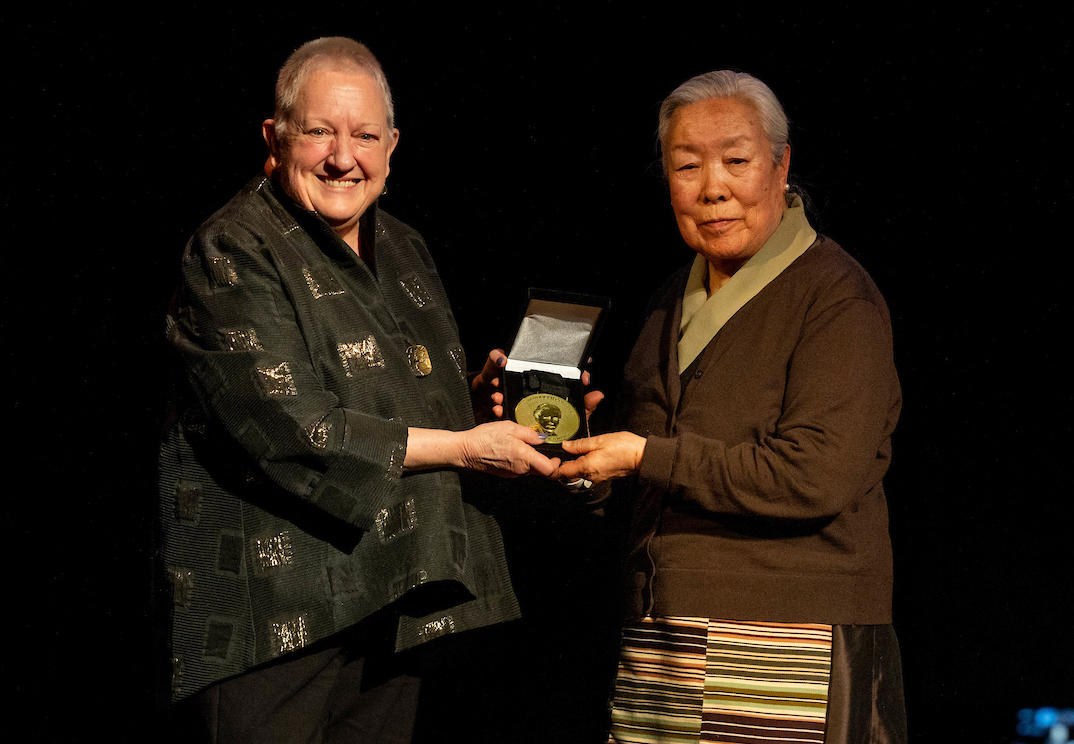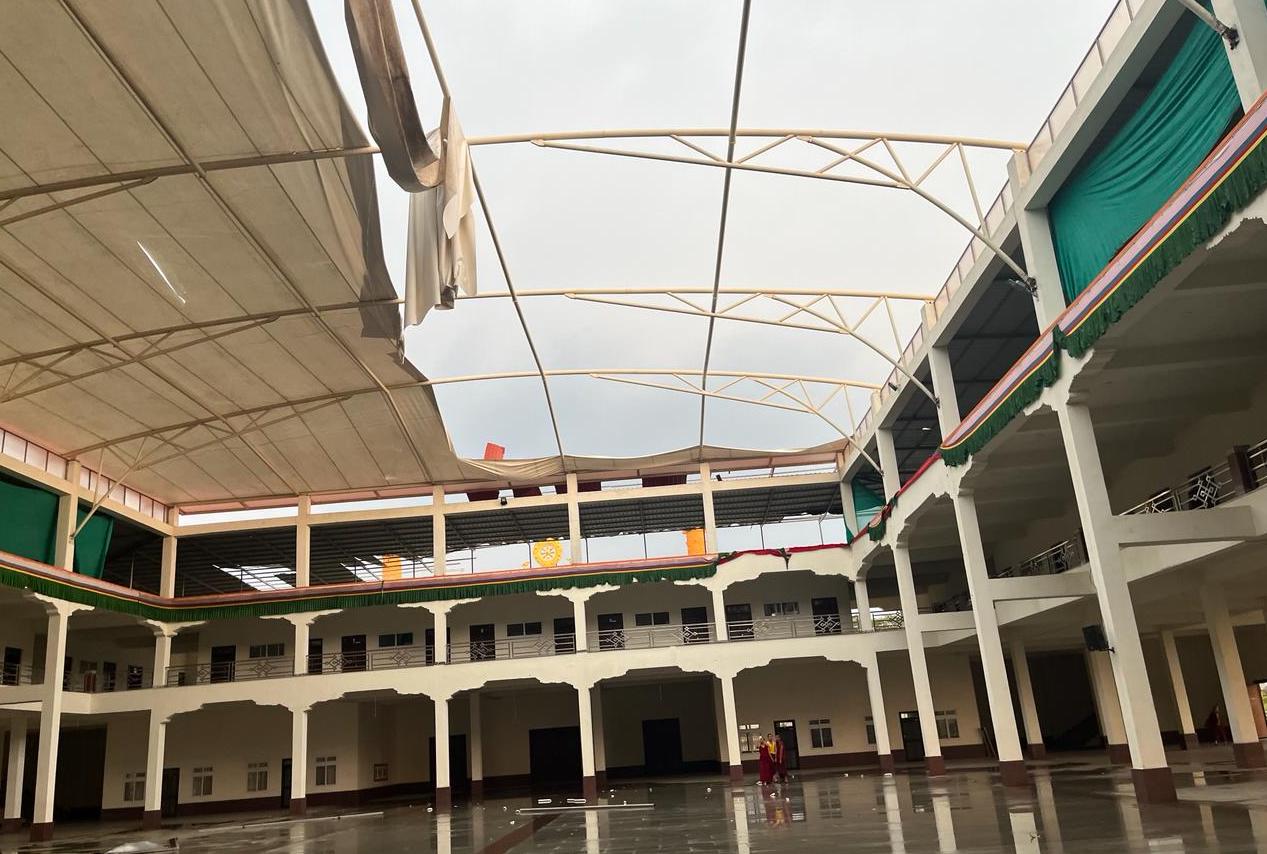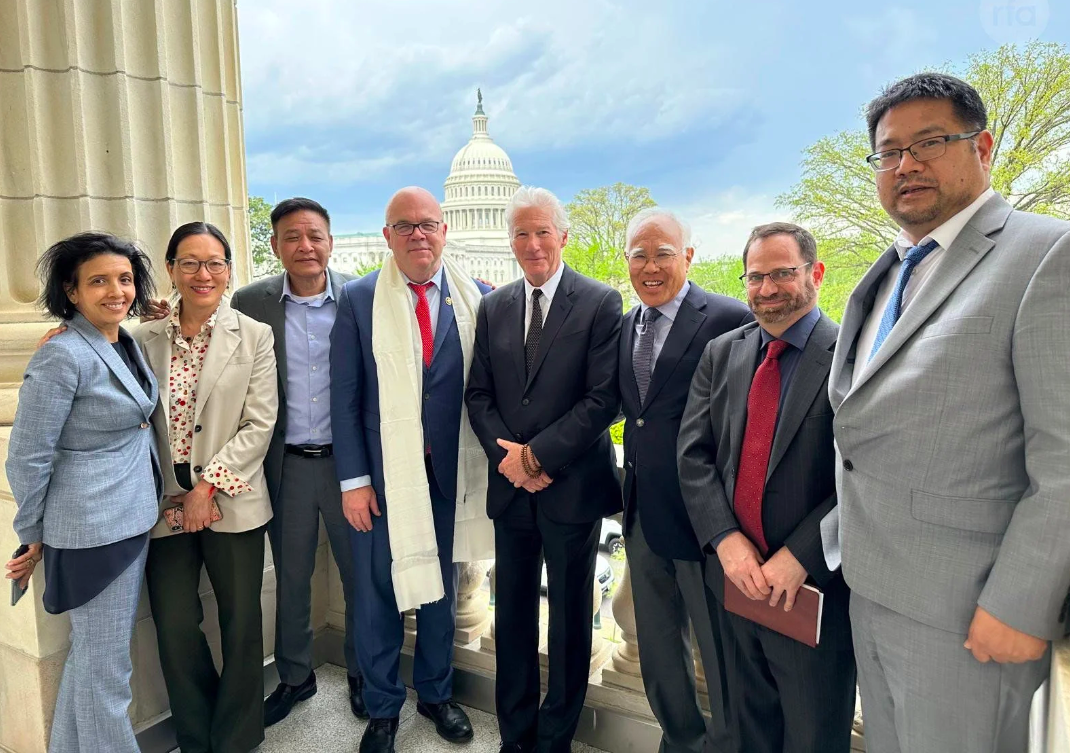From its staunch Buddhism to a new anti-Aids campaign, James Pringle in Thimphu finds Bhutan is flourishing between the neighbours from hell
During that first chilly night in Thimphu, the Lilliputian Bhutanese capital, the night belonged to the dogs, from the half-dozen on guard outside my spartan hotel to those that inhabited the whole valley in which the capital lies. Sleep, with the barking and howling and the thin atmosphere, proved to be impossible.
Even the Bhutan Mist whisky — ‘blended with real Scotch’, the label said — did not help bring release. Why, I groggily asked the man at the front desk in the morning, could there not be humane extermination of many of such a vast , no doubt rabid, canine population? ‘Dogs have a right to exist too,’ he replied stiffly. ‘Killing brings bad karma to us Buddhists.’ Chastened, I went to the door; the dogs outside looked up questioningly, then turned away. I was within their protective circle.
The weekly Kuensel, the only newspaper, reported that wild boars were wrecking vegetable gardens inside Thimphu itself. Later, I had to flee with my government ‘minder’ from some bears on a forested Himalayan slope; it is nature in the raw here.
‘Good morning, sir,’ teenagers on their way to school called politely. The boys wore knee-length kilts or gho, some with jaunty Argyll socks. The girls wore wraparound gowns or kira. The national dress is compulsory for those aged over 14 during daylight hours. They all spoke English, the language of tuition, though among themselves they chatted in Dzongkha, one of a dozen languages in this country of only 700,000 people.
I had arrived in landlocked Bhutan the previous day, coming in on the white-knuckle approach to the kingdom’s only airport, as the Druk Air plane from Calcutta weaved through the mountains, passing the Tudor-like local cottages at eye-level.
The Baltic states complain about their giant Russian neighbour, the Mexicans lament being ‘so far from God and so close to the United States’ — but just consider the unfortunate Bhutanese. This mountainous country the size of Switzerland, which only opened to the outside world in 1961, is the last Buddhist kingdom in the Himalayas and is hemmed in by huge China and India. These are the neighbours from hell — the Chinese have already gobbled up Tibet, the fount of Bhutan’s Buddhism, and the Indians swallowed neighbouring Sikkim in 1974.
Thimphu’s media-shy government, which restricts tourism through pricey tariffs, had permitted a small group of Western correspondents — once the most unwelcome visitors of all — to enter on a reporting trip to the ‘land of the thunder dragon’.
In a simmering row with nearby Hindu Nepal over tens of thousands of illegal Nepalese seeking free land, Bhutan lost the war for international public opinion by keeping the fourth estate at arm’s length while the Nepalese nimbly projected their grievances. Now a tentative media scrutiny is permitted.
But this land of wicked demons and angry gods, fluttering prayer flags, butter lamps, red-robed monks, fortress monasteries, snow leopards, yaks and the takin (a strange creature whose closest relative is the Arctic musk ox), seems to fear new agers most of all, the latter-day hippies who in the past 30 years have had such dire effects on troubled Nepal’s culture.
There is not a single ‘world traveller’ to be seen, and yet this is where they would most be at home, in a sexually tolerant country — ‘we are promiscuous in terms of gender relations’, one minister admits — where 85% of people, reserved but cautiously welcoming, still live more than two days’ walk from the nearest road. Bhutan may be conservative, but it is not puritanical. The anti-Aids posters are shockingly graphic — ‘cover me’, pleads a giant phallus, depicted wearing boots, and Girl Guides carry a banner announcing ‘condom is sensuous’ at a health rally. The government fears an HIV influx through the open border with India.
King Jigme Singye Wangchuck, the 47-year-old basketball-playing monarch who is married to four beautiful sisters, speaks of his desire for ‘gross national happiness’. Still, the government runs a pretty tight ship. Socially, cigarette sales are banned in much of the country, though Red Panda beer and Bhutan Mist are available in the small wooden shops.
Ecologically, the revered king insists that 60% of the country remains forest-covered to the extent the prime minister told me: ‘We just have too many bears.’ I noted that a number of villagers wore the scars of the Himalayan black bear.
Bhutan is contemporary and yet other-worldly. The government is like a stern schoolmaster — ‘we know what’s good for you’ — while providing free education, though 48% of children still don’t go to school, and healthcare. They do their best to pay for the latter on their own. ‘We are poor, but we want to fund healthcare ourselves,’ said activist Health Minister Sangay Ngedup .
Young people use e-mail, go to discos in T-shirts and jeans — they can wear what they like after 8pm — and are computer literate. But at the same time, an articulate government minister talked about life during his previous incarnation — in Mongolia. Older Bhutanese remember a land without roads, schools or currency just over a generation ago, when life expectancy was just 40 — now it is 66.
Even in these remote mountains, there is concern over terrorism. Militants fighting to free Assam state from India have taken sanctuary in southern Bhutan, where most of the 5000-strong Bhutanese army is deployed. Thimphu urges the rebels to leave before India decides to drive them out. In earlier times, Bhutan had to ward off British imperialism, but the British nibbled at its territory anyway. Now it is a member of the United Nations, a form of self-protection.
Buddhism here lacks the passionate intensity it has in Tibet, even under Lhasa’s harsh Chinese masters. The exiled Dalai Lama has never been invited here. Overall, Bhutan has a sober mien, as if it does not wish to attract too much attention to itself. People say their very survival is at stake. After all, sovereignty in these ill-named Shangri-Las in the Himalayas is a fragile thing. In Tibet and Sikkim they have already found that out.









